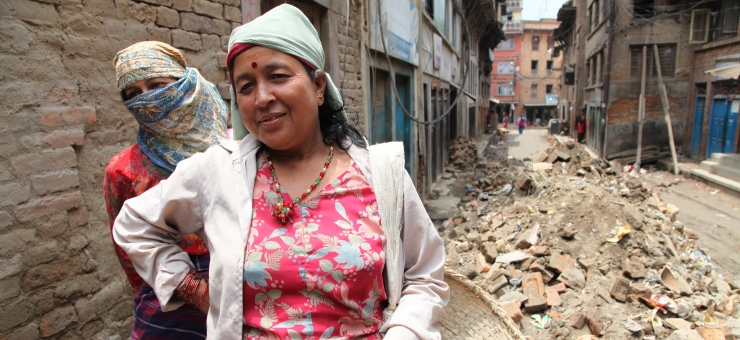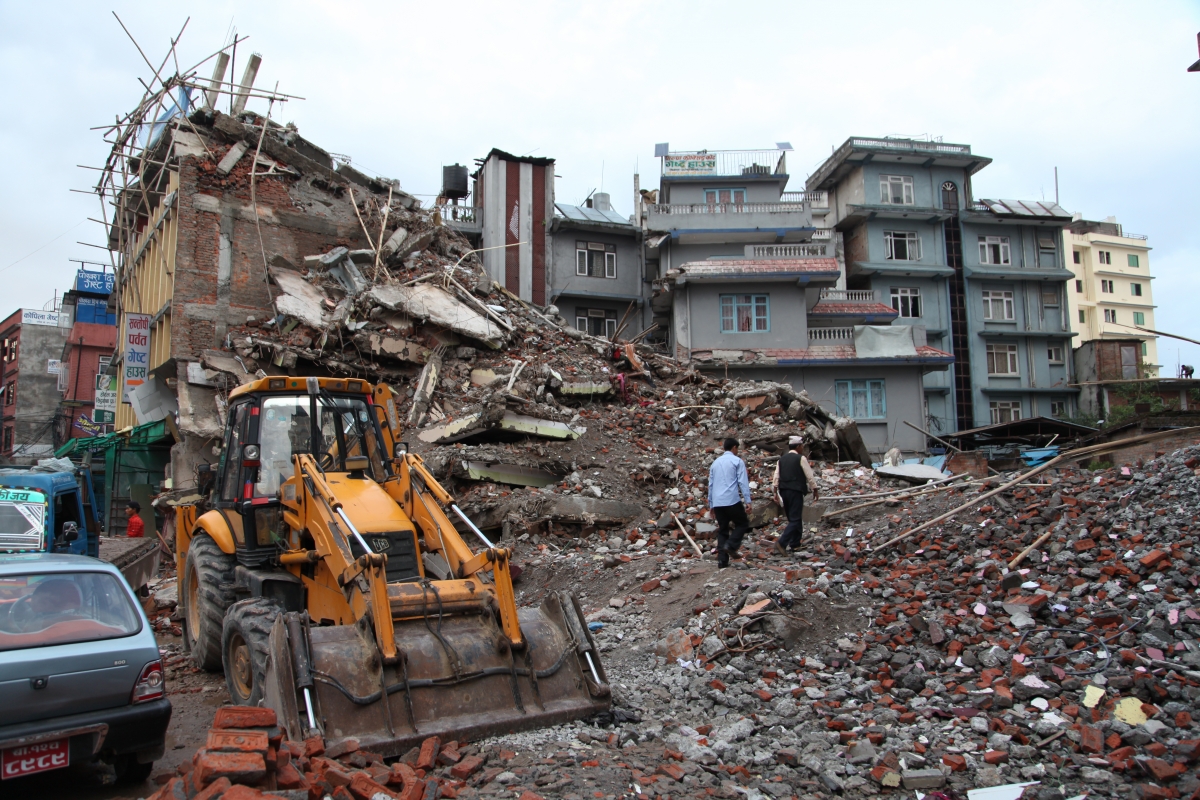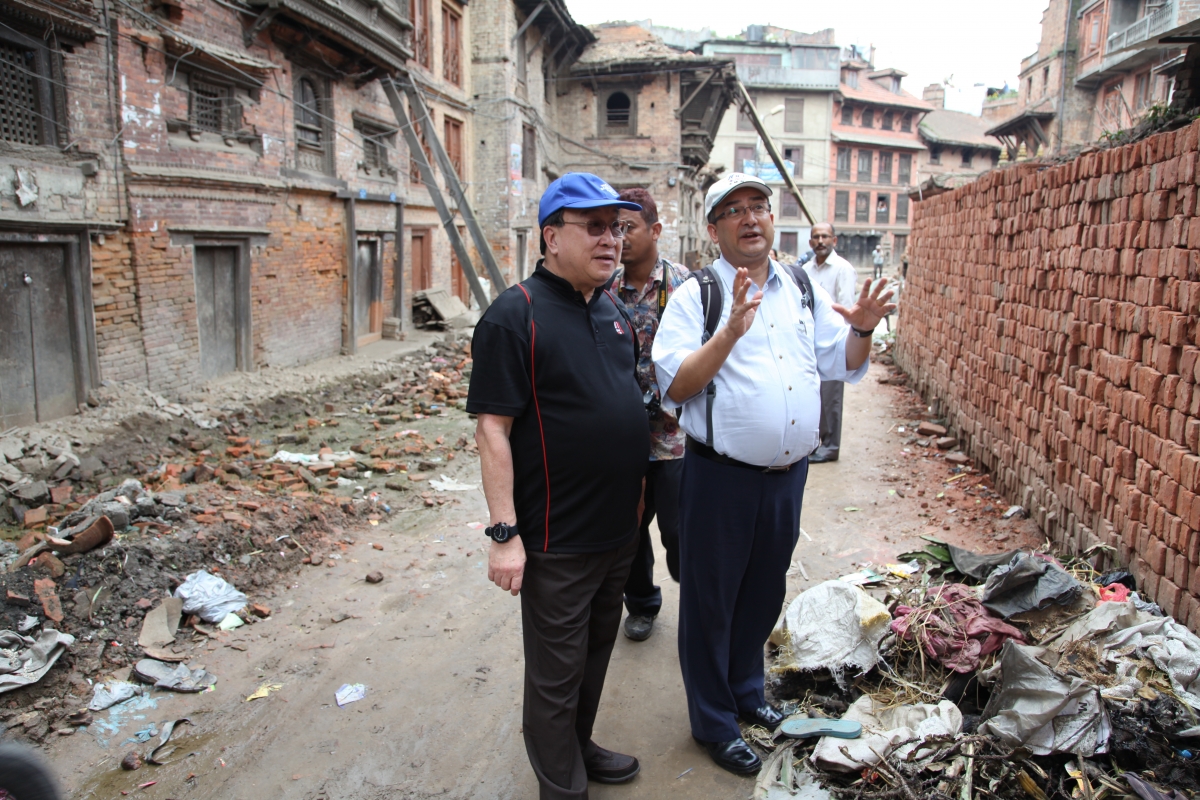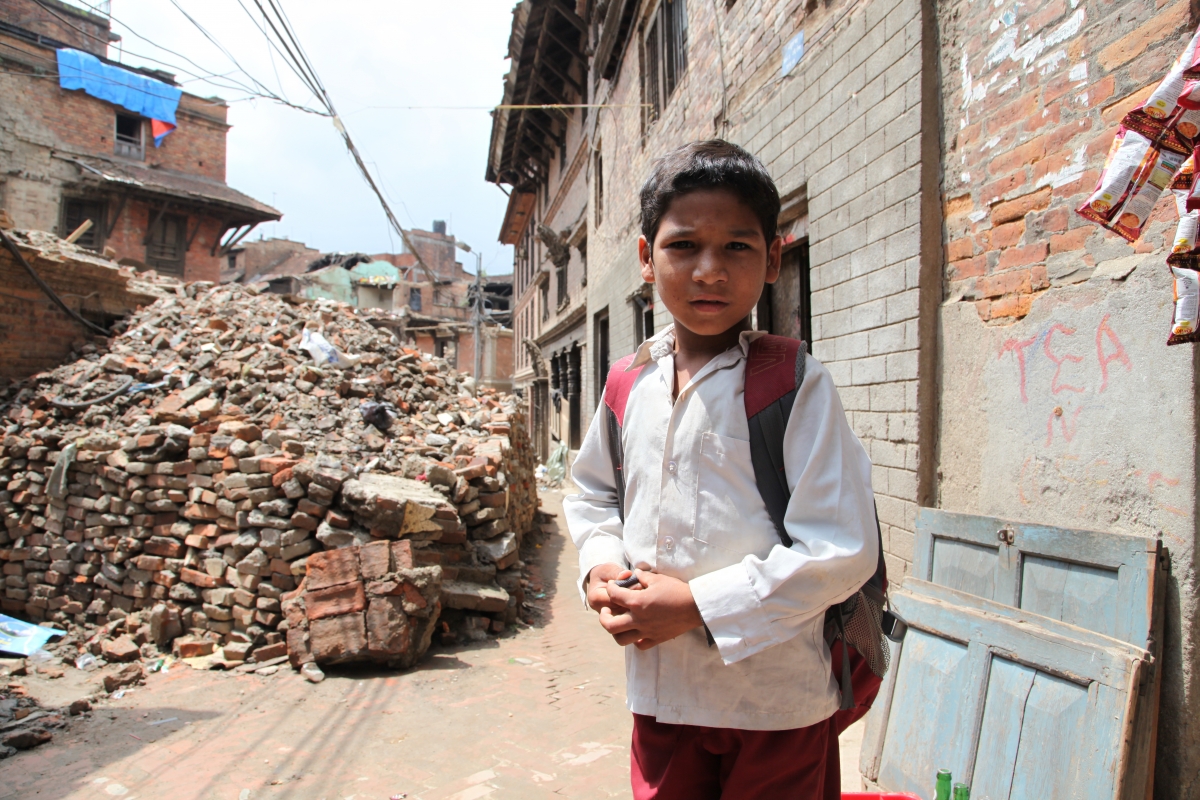Jobs and training key to Nepal recovery, UNI delegation finds

Jobs, skills and training will be essential to the earthquake recovery in Nepal as tourist numbers fall said UNI APRO Regional Secretary Chris Ng during a visit to the capital Kathmandu.
Ng, who is leading a UNI Global Union delegation to some of the worst hit areas of Nepal, met with unions, survivors and delivered condolences to the families of thirteen UNI Global Union members killed in the earthquake.

Jobs have been devastated by the disaster with tourism drying up and other sectors seeing profits dwindle. Nepal is one of the poorest countries in the world and its economy relies heavily on tourists who visit for the remarkable scenery, culture and world famous mountains, including Mount Everest. But now the economy faces further torture as businesses feel the strain of the recovery. Unions must play a leading role in preparing workers for the recovery, Ng said.
“It is very unfair for the Nepalese people that having recovered politically and economically in recent years they have been hit by this earthquake that will cause a tremendous setback in their development process,” he said.
The UNI Nepalese Liaison Council, led by UNI APRO Director Rajendra Acharya, is carrying out vital relief work in response to the earthquake which killed more than 8,000 people earlier this year. Unions, in partnership with APHEDA-Union Aid Abroad have carried out food distributions, are running free health camps and have built temporary shelters to protect the public as the monsoon season arrives in the South Asian country.
"We are doing everything possible to help to provide the immediate needs such as health care, food and shelter to those affected by the earthquake. We will help Nepali workers in training and skill development so the people who are affected by the displacement eventually find new jobs. It will be a tremendous challenge but because of the lack of jobs, those looking for work could be held to ransom and we must ensure that there will be no race to the bottom,” Acharya said.

Many hotels in the capital Kathmandu have been closed due to damage with others operating at 25% of their usual occupation. Tourists flights to see Mount Everest are being cancelled due to a lack of demand.
“Tourism is a critical part of the economy here but people have been scared of coming to Nepal since the quake. This will have serious repercussions on jobs. Many people have already lost their jobs as hotels are seeing slow down in business and therefore our immediate priority must be to inspire the confidence of the people to come back to visit Nepal,” Ng said.
“One of our most important roles must be to show the Nepalese people that there are people and organisations outside of Nepal that care about them. We can certainly give them the moral support they need and provide them, through our network of experts, advice on how the trade union movement can play a constructive role in the rebuilding process,” Ng added.

To contribute to the UNI Nepal relief fund, please visit http://uniglobalnepal.org

